See inside the 4-seat electric flying taxi that could be shuttling passengers between airports and city centers by 2026
Stephen Jones,Taylor Rains

Eve expects the aircraft to operate in cities like London.Eve Air Mobility
- eVTOLs, or "flying taxis", are being hailed as the future of short-haul inner city travel.
- Embraer's Eve has received 1,900 orders from US airlines such as Republic and Skywest.
The Farnborough International Airshow 2022 was arguably about all the flying taxi. Multiple firms unveiled their plans for eVTOLs – electrically powered Vertical Takeoff and Landing Vehicles – that are being seen as the next stage of urban air travel.

Vertical Aerospace (pictured), Boeing-backed Wisk, Supernal and Joby Aviation were among the firms to show-off eVTOL concepts at the show. Vertical Aerospace
eVTOLs are a key part of Advanced Air Mobility (AAM) — a transport system using new types of aircraft and drones to move people and cargo around and between cities.
Airlines like American and JetBlue plan to use eVTOLs to ferry premium passengers between city centers and transport hubs. Major aircraft manufacturers Airbus and Boeing are among a number of firms developing their own versions of the craft.
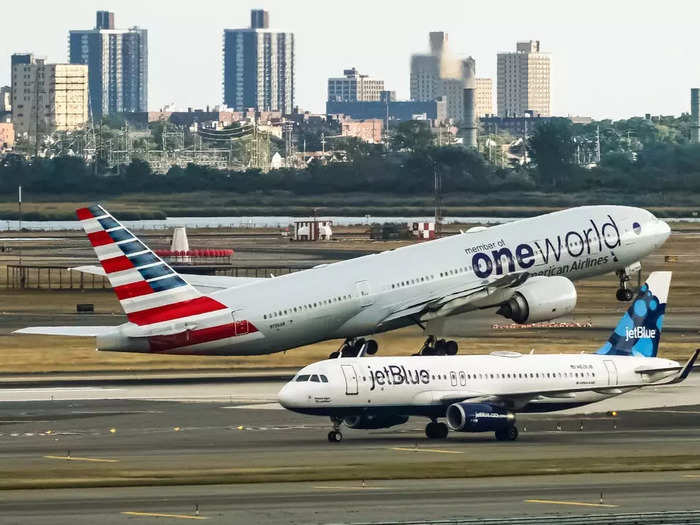
Major aircraft manufacturers Airbus and Boeing are also developing their own flying taxi aircraft. NYC Russ/Shutterstock
However, the craft with the most potential, at least in terms of orders, is Brazilian plane maker Embraer's Eve, which it launched through New York-listed subsidiary Eve Air Mobility (EAM).

Embraer E195-E2 at the Farnborough International Airshow. Taylor Rains/Insider
The craft has won 1,900 orders from regional airlines including Republic and Skywest, helicopter firms and Europe's largest defence company BAE Systems.
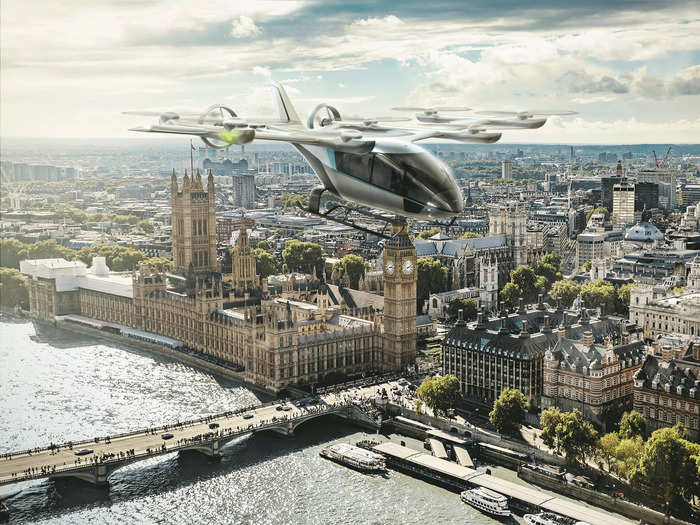
EAM expects Eve to operate in cities like London. Eve Air Mobility
EAM unveiled a mockup of the cockpit at the airshow, and hopes Eve will be in operation in cities from 2026. Here's what it could like look like.
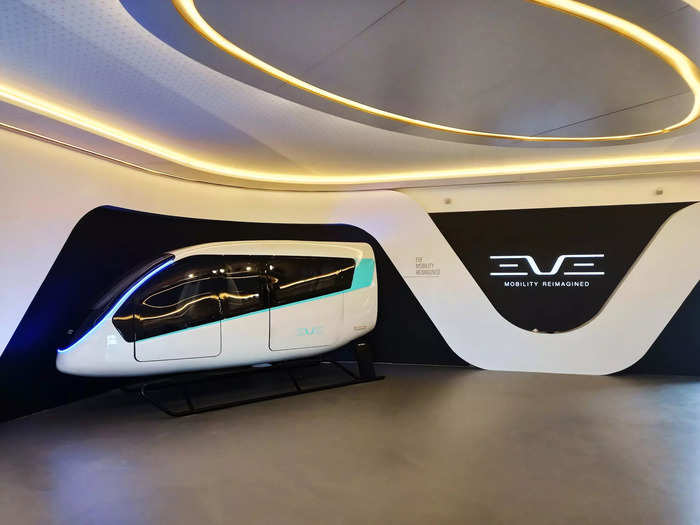
Only a cockpit mockup was on display. Eve Air Mobility
"Our targeted flight range will address 99% of intra-metro travel," EAM's David Rottblatt told the publication eVTOL in February.
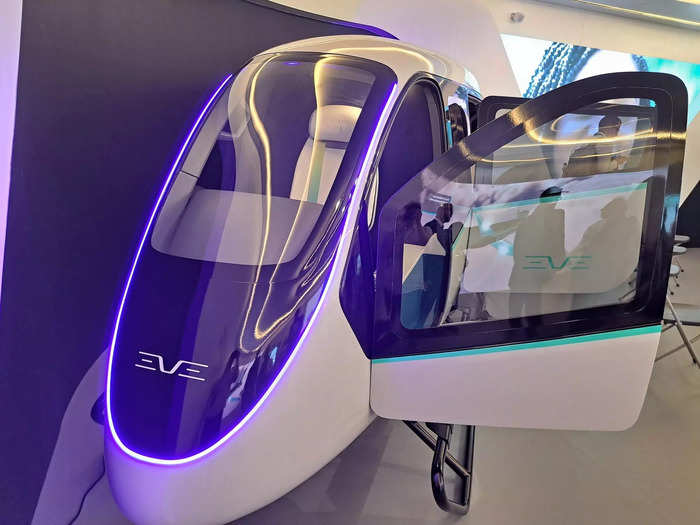
The small electric-powered craft will be used for inner-city travel. Stephen Jones / Insider
Source: eVTOL Insider
The cabin has four seats, arranged in two rows facing each other. The pilot will control the aircraft from a separate cockpit.
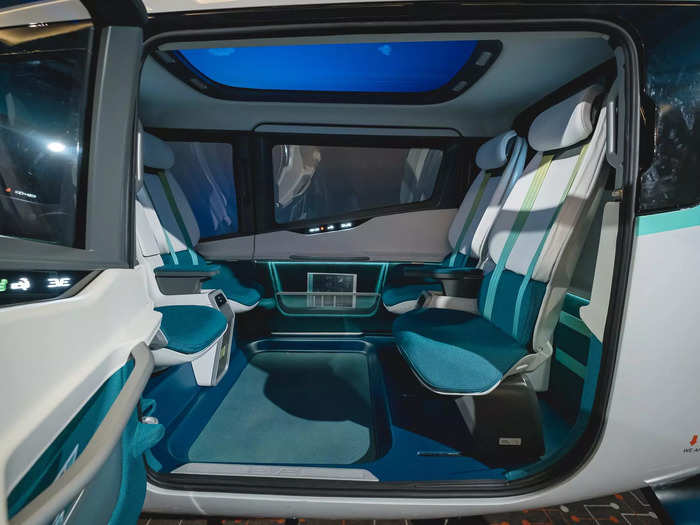
Inside the passenger cabin of the Embraer-backed eVTOL called Eve. Eve Air Mobility
The cockpit mockup contained limited controls, but the final design is likely to change after flight testing.
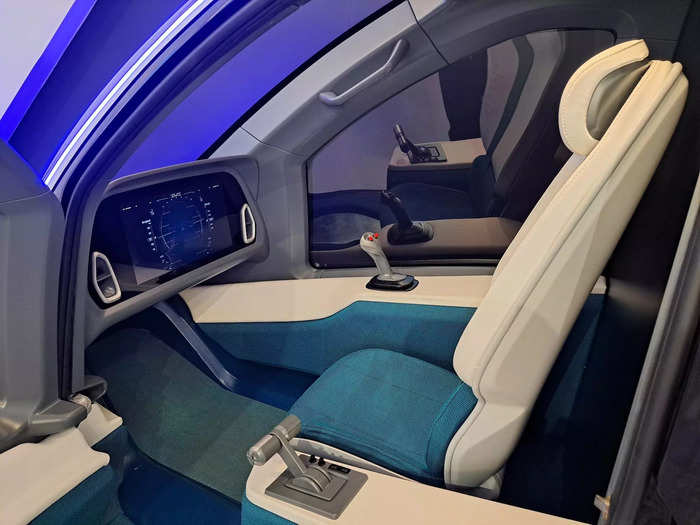
The final design may change. Stephen Jones / Insider
The cockpit contained a small gear stick.
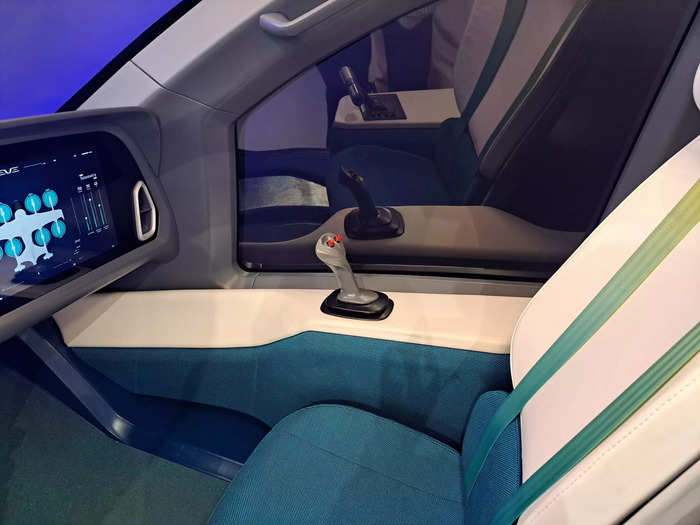
It's similar to the joy stick seen on conventional helicopters. Stephen Jones / Insider
And a display screen to show the aircraft's flight systems.
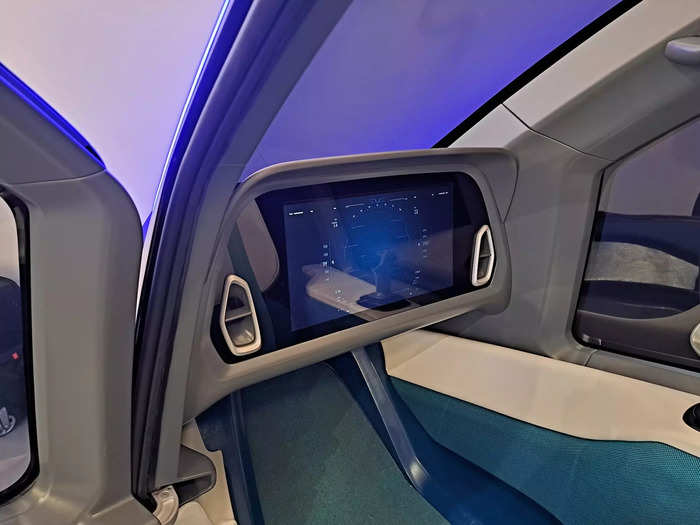
The screen inside the cockpit of the Eve eVTOL. Stephen Jones / Insider
The final design could well change, however.
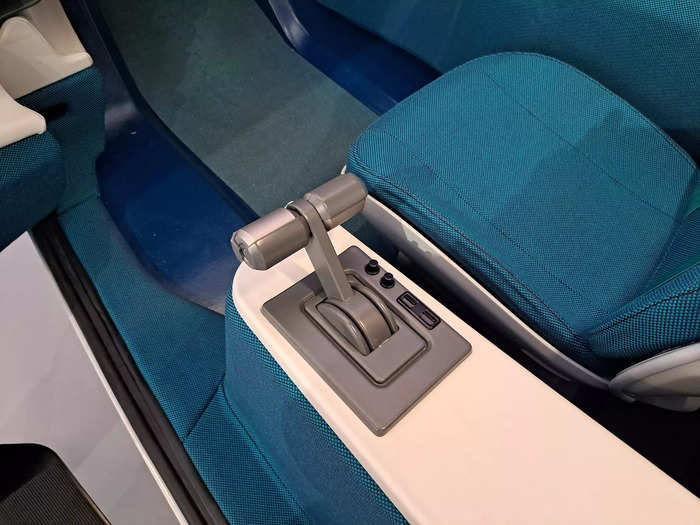
The cockpit mockup ha limited flight controls. Stephen Jones / Insider
Like many other eVTOL manufacturers, EAM is seeking regulatory approval for its craft. So how likely is this to happen?
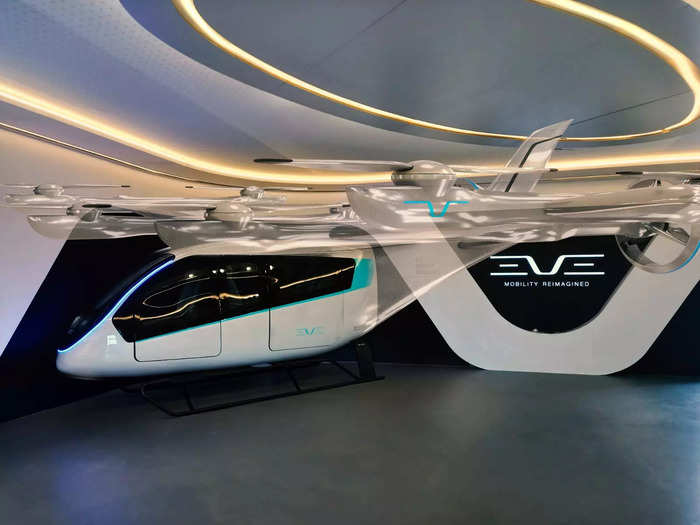
Eve will have eight rotors allowing for vertical take off and landing. Eve Air Mobility
Source: SimpleFlying
If Advanced Air Mobility is to reach the potential investors believe it can, it will require a radical upgrade to localized air traffic management, as well as its own infrastructure.

Operators imagine eVTOLs will travel between a network of "vertiports" located in city centers and transport hubs. Skyports
Integrating vehicles into already complex existing airspace is one of the biggest barriers facing operators, said Simon Whalley of SkyPorts, a UK startup working to develop a network of vertiports. That could be even more of a challenge if aircraft are operating in densely populated city centers as proposed.

Skyports is developing a network of vertiports, including a proposed hub at Cergy-Pontoise, outside Paris. Skyports
"You're operating at lower levels. You're close to people, you're close to buildings. So you're dealing with things like visual and sound blight, for example," Whalley said. "All those things are going to have to be taken into consideration by the industry."
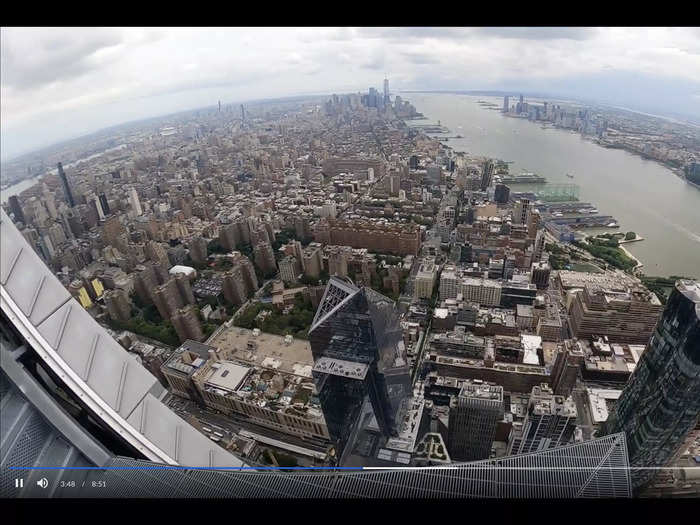
New York City from above on City Climb. Courtesy company
Regulators have been broadly supportive. In the UK Eve led a consortium of AAM firms, helicopter operators and airports in partnership with the Civil Aviation Authority to develop a scheme for how the system could operate in London.

Heathrow airport. EQRoy/Shutterstock
Source: EAM
In June the European flight regulator EASA published first draft proposals setting rules on how air taxis including eVTOLs but also unmanned craft could operate. A consultation is open until September.
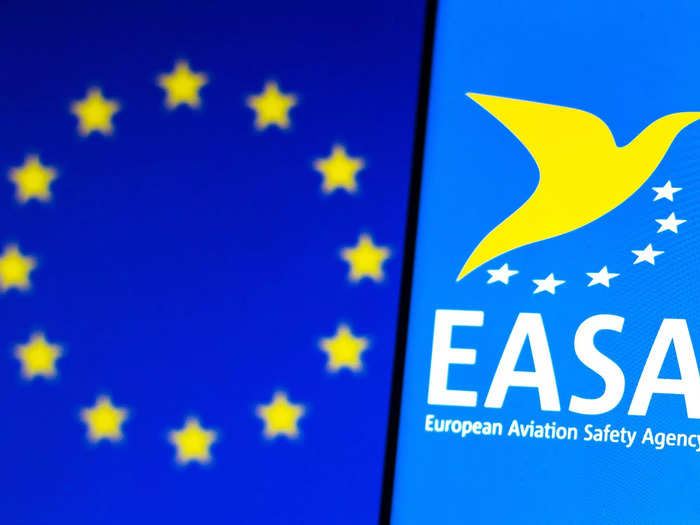
EASA's proposals focus on crew licensing, flight rules, airworthiness and operations. SOPA Images / Contributor
Source: EASA
In the US, the FAA recently put eVTOL firms on edge when it shifted the rules on how the craft will be certified. Rather than being classed in a similar way to small aircraft, eVTOLs will now be classified as "power-lift" aircraft because they take off and land vertically in a similar way to a helicopter.
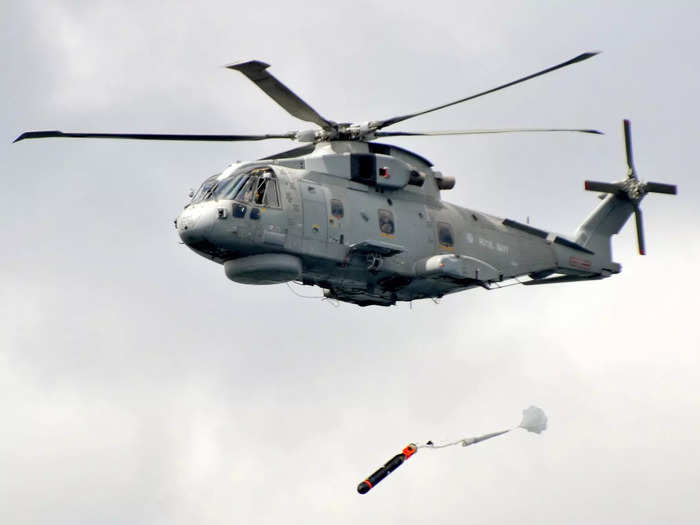
eVTOLs will now be classified as "power-lift" aircraft, because they take off and land vertically, in a similar way to a helicopter. Royal Navy
Source: The Air Current, Reuters
The FAA said this shouldn't delay the process for certifying aircraft. Joby Aviation, another eVTOL manufacturer that's backed by JetBlue, is working towards full FAA certification by 2024.
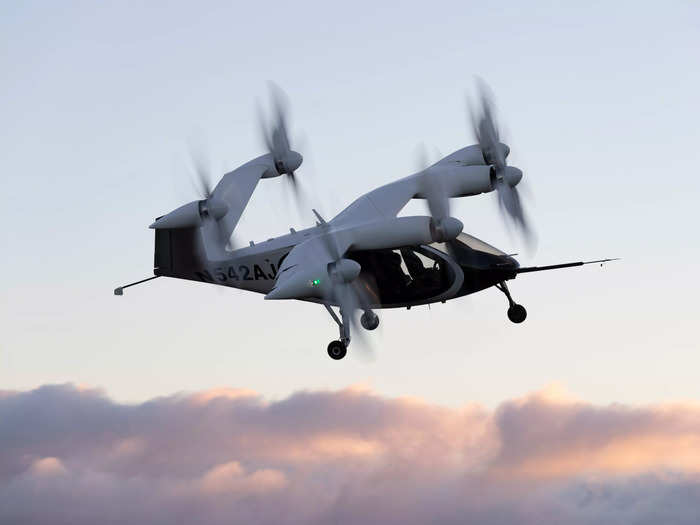
The Joby eVTOL. Joby Aviation
Source: Joby Aviation
Popular Right Now
Popular Keywords
Advertisement